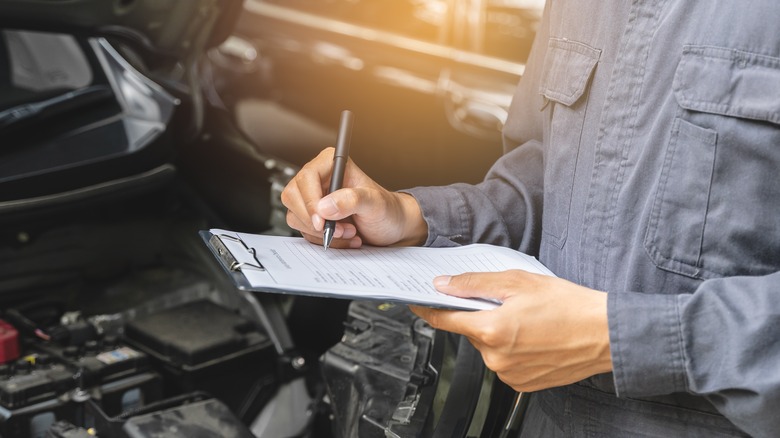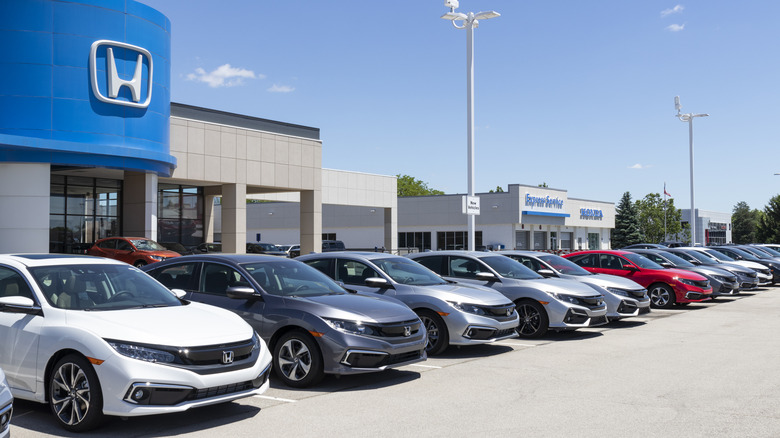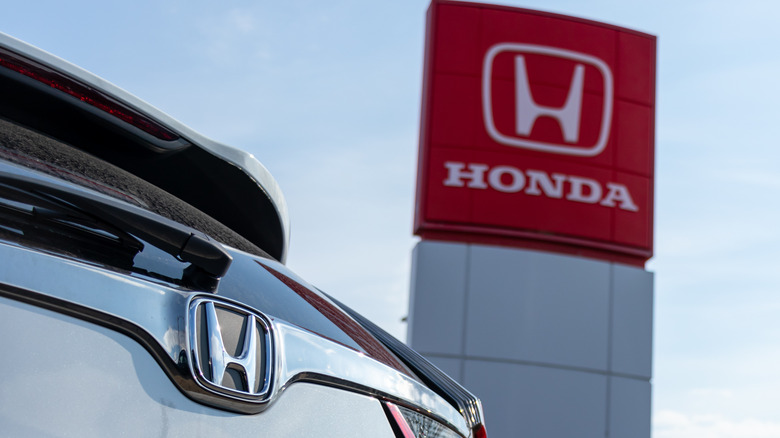What To Do If You Own A Honda That's Been Recalled
Honda recently recalled a few models, including the 2023 Honda Ridgeline, the 2023-24 Honda Odyssey, and Honda's most expensive luxury vehicle, the 2023 Honda Passport. This is not out of the ordinary, though. While Honda has a number of reliable models in its lineup, carmakers sometimes issue recalls to address potential manufacturing defects that might result in safety risks.
Cars undergo rigorous testing before being launched to ensure they're safe, but certain issues and defects only come to light once the vehicle is exposed to real-world driving conditions. When this happens, registered owners of the affected vehicle receive a recall notice from the brand. It's important to note, however, that a recall does not mean all vehicles from the model year are affected. For instance, in the case of the 2023 Honda Passport and Ridgeline, 1% of the vehicles were estimated to be affected by the issue that triggered the recall notice.
If you've recently received a recall notice from Honda, it's important to have your car inspected by an authorized Honda dealer at the earliest possible time, so any potential issues can be rectified immediately. We'll explore what your next steps should be if you learn of a potential recall.
How to confirm a Honda vehicle recall
If your vehicle has been recalled, Honda will contact you by mail to notify you. The mail will detail the issue and explain the risks of not bringing your vehicle into a dealership for inspection and repair. However, if you suspect that your car may be recalled and don't have access to your mail, you can check for recalls through Honda's website by entering your 17-character VIN. You'll find the VIN on your vehicle's registration and insurance card, on the driver's side door jamb, or at the base of the driver's side windshield.
Alternatively, Honda's website also lets you enter the year and model of your car to check for any potential recalls that might be out for the vehicle. Looking up recalls with your VIN will give you information specific to your car, while the other method will pull up all active recalls for the model. Keep in mind that Honda owns several automotive brands. So, if you own, say, an Acura, you'll need to check for recalls on Acura's website. Another way to confirm if your Honda has been recalled is by calling an authorized Honda dealership in the vicinity.
Steps to take if your Honda vehicle is recalled
A recall indicates that the manufacturer has identified an issue with the car that could potentially increase your safety risk. Since you can't be sure of the extent of the problem, and there have been instances of deadly car recalls in the past, it's best to stop driving your car until you have it inspected. After you receive your recall notification from Honda, the first thing you should do is contact an authorized Honda dealership in the area to schedule an appointment to get your car checked out. Although recalls don't expire, be sure to schedule the appointment as soon as the dealership or service center can accommodate you.
At your appointment, Honda's service technicians will inspect your vehicle and repair or replace any defective parts. In some cases, the recall might require repairs or fixes that you've already completed at your own expense on a prior date. In this case, you might be eligible for a reimbursement from Honda. If this is something you are eligible for, your recall notice will specify the details.
Typically, repairs and replacements for recalled vehicles are done for free by authorized Honda dealerships. However, keep in mind that the timeline for repairs can vary based on the task at hand. For instance, issues that can be resolved by performing a software update should take no more than a few hours. Conversely, defective part replacements or issues that require significant engine-related work take a few days.


